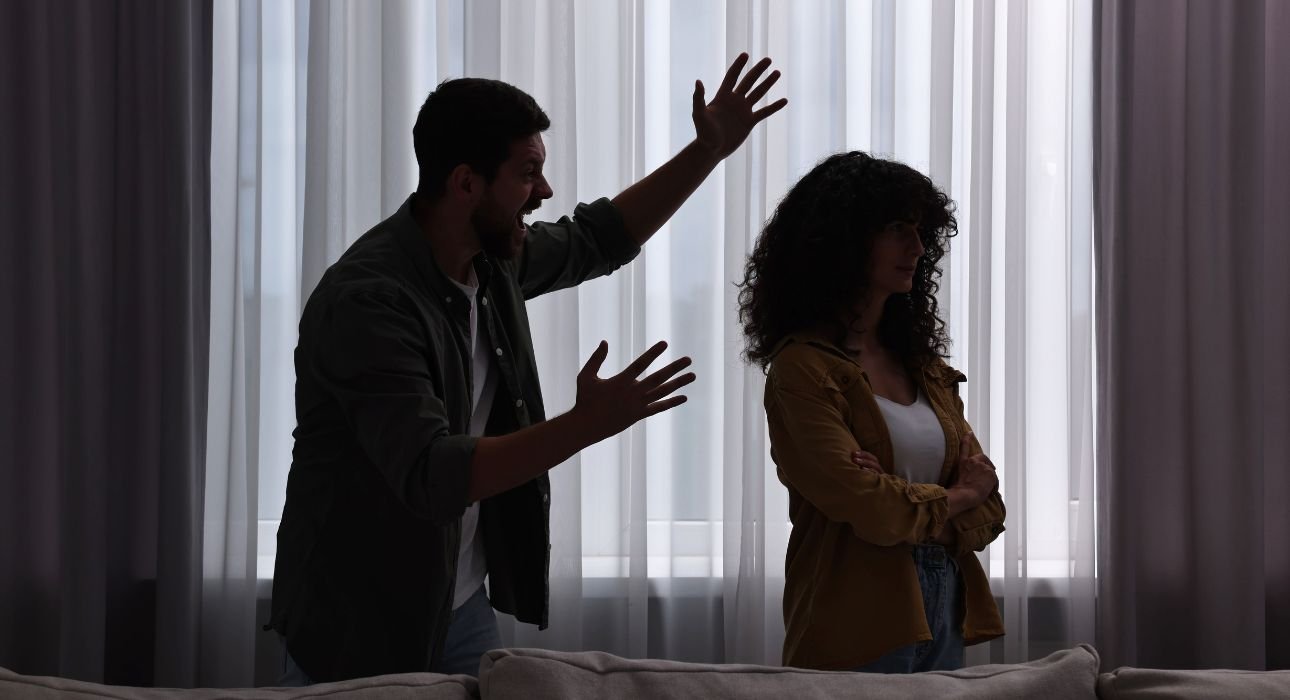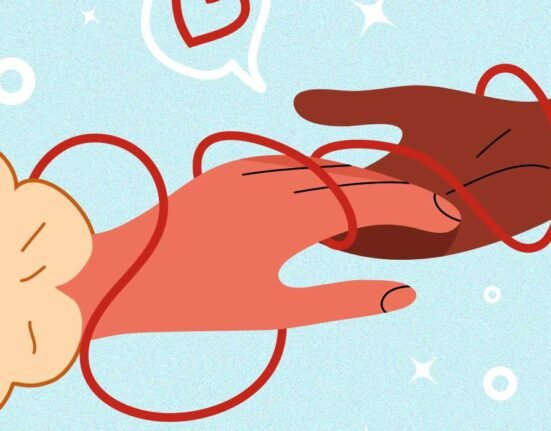Just like in Migration, maybe you’re staying in the pond when you were meant to fly. In the amazing movie Migration, the family of ducks lives in the pond. The father duck is being a helicopter parent, afraid of challenges and restricting his family from adventures, even at the cost of thrill and exploration of a shining world. That is why family is only bound to that small pond. However, as the storyline unfolds, they all break through the wall of fear and leap into the unknown, facing challenges, only to discover how much more life has to offer when they stop playing small.
Relationships can be like that pond. Comfortable, familiar—but limiting. Many of us stay in relationships that no longer help us grow, just because they feel “safe.” We silence our needs, ignore red flags, or accept crumbs of connection because we’re afraid that flying into the unknown might be worse. But what if, like the Mallards, stepping out of our comfort zone is exactly what we need to find something more meaningful?
Everyone goes through tough phases in their intimate relationships with their partner. Your inner voice asks a question: “Is my relationship just another comfort zone?” “Am I thrilled, or just comfortable?” While the psychology of comfort versus fulfilment can describe why we exactly juggle between the two. Settling for less is neither trivial nor dysfunctional all the time. However, if it exceeds the limit, then it screams out in patterns of disappointment, frustration, and unaddressed needs. Why does this happen? What can we do to stop?
Why are you settling for less in a Relationship?
1. You think “Love is painful.”
Emotional wounds are defined as true love is a misunderstanding. Songs from films that linger in our minds since childhood can influence how we view love in adulthood, often glorifying emotional pain as a sign of true romance. It could also stem from observing how their parents treated each other, shaping their early beliefs about what love should look like. One of the scrolled romantic quotes on social media inspires you to continue on the wrong path. It all subconsciously makes us suppress what we want and embrace the idea that true affection is suffering.
Let’s face the reality together: Love is not at all painful; it is a vital aspect of life. When one pushes hard to make the bond last, while the other needs to pull with love, gratitude, and respect how the roles should interchange willingly. It’s not supposed to leave you empty inside, doubting your self-worth, questioning your decisions.
2. “So many years of our relationship mean how compatible we are!”
The biggest error is in thinking that the length of your relationship reflects compatibility and suitability. It’s like you have come to the party you don’t even like, but now you have to be there because you spent time on makeup and all. That’s the sunk cost fallacy—when people put up with dissatisfaction while rationalising the efforts they’ve made so far, because they won’t get them back. Instead, they end up losing even more emotional energy (Gould, 2025).
If you are staying together because of longevity rather than common principles, values, you are more likely to compromise. Ask yourself if you’d choose this person again today, knowing everything you now know.
3. You don’t want to restart
Building a relationship and maintaining its rhythm takes a lot from the couple; it’s either physical or psychological. They have gone through the euphoric stage, early attachment stage, crisis stage, and, for some exceptions, the deep attachment stage (Abrams, 2024). So, starting over kinda scary thought for them. Finding someone on apps, then dating, understanding, and opening up in front of them—none of it is intriguing. You are used to settling. Leaving a partner could be a painful decision, but it is transient. The idea of staying together leads to remaining in comfort zones, but drains joy. Don’t hold yourself back from flying to a new horizon.
4. You don’t think you’ll find someone better
“If my partner were not with me, I would be nothing.”
Low self-esteem leads you to a compromise with yourself. If you look down upon yourselves, encircle the thoughts that you have so many flaws and that you don’t deserve. This attitude could deceive you as you are in love. But beneath the surface, a lack of respect and a lack of self-love exist. This mindset leads you to believe that whatever you receive from your partner is the best you can hope for, making it hard to see beyond the relationship. But that’s not love—it’s fear disguised as gratitude.
Nobody should have to perform to get basic respect, affection, or attention. The right person won’t make you feel like your needs are a burden. Challenge the inner myths that tell you otherwise. You deserve a love that is transparent and freely given, not out of obligation or convenience, but from genuine compassion and care.
5. You Are Retaining Potential
Potential, the greatest hazard in modern romance, ah. You see, rather than what they are, but what could be. You tell yourself things like, “Once they get that job,” “Once they stop drinking,” or “Once they start speaking up more,” but in reality, you’re sleeping with an illusion.
Yes, people can grow—but only if they choose to. If someone continually takes your needs for granted and makes no effort to change, you’re not in love with them—you’re waiting for who you hope they’ll become. Loving them for who they are is important, but moulding oneself for each other is also essential to grow together. So, look at the reality and break free of the fantasy.
6. You Mix Up Safety with Familiarity
Some people choose to settle because they feel safe in the relationship, while others experience familiarity. You are an expert at navigating their emotions. You are aware of what not to say. You are aware of when to back off. But that’s survival, not safety. Feeling emotionally comfortable rather than emotionally repressed is what true safety is all about. You’re not in a secure relationship if you’re always controlling other people’s reactions, biting your tongue, or shrinking yourself to keep the peace. Instead of control, safety feels like liberation. It’s like having the freedom to be who you are, not simply the one that suits you.
7. The sixth sense is ignored.
Dr. Malcolm Crowe, the main character from the movie The Sixth Sense, knows it all along but is living in denial. The movie’s unexpected twist isn’t a complete surprise for the audience, as they’ve been given hints of it throughout. The hints were constantly present, subtly indicating the reality. That’s also how your intuition functions. It murmurs. It pushes. It makes you uneasy. Additionally, as in the film, you may choose to disregard the warning signs since facing the truth feels too upsetting.
Your sixth sense tells you, ‘Something seems off,’ even if you ignore it, suppress it, or make excuses. But, we’ve been habituated to ignore our inner voice and go with the flow—even if it’s taking a wrong turn. A lesson of our life is to prefer adjustments over clarity and practicality over emotions. It’s wise to follow your instincts rather than acting on them. The oldest part of you is attempting to keep your peace.
How to Stop Settling: A Path to Real Love for Yourself
Don’t freak out if you’ve gotten this far and anything resonates with you. This has nothing to do with blaming your partner or putting yourself in shame. It has to do with awakening. You can start the process of taking back your relationship standards in the following ways:
1. Determine Your True Desires
Be clear about what fulfilment means to you. How does wholesome love feel? Which values are most important? Do you have any non-negotiables? Put them in writing. Say them aloud. Be truthful. Don’t limit yourself because you think your list is “too much.”
2. Find out What You are receiving.
Examine your current relationship, without anger or accusation, and compare it to that list. Are you getting what you need? Are you appreciated, heard, and helped? Are you growing apart or together? Leave the answers alone if they hurt. Make use of it.
3. Be strong: Discuss it.
Being honest is the foundation to resolve this concern. For that, you have to have an open talk with your partner before making important decisions. Both should let out their versions of the truth about fulfilment. Give them a chance. Their answer might be defensive or manipulative.
4. Recover from emotional wounds and start a new beginning
First, prioritise yourself. Make time for yoga, a hobby class, therapy, or joining a social circle. Meet people who inspire you, and their stories will make you resilient. You don’t settle for less if you still believe in yourself.
5. Allow yourself to be free
Leaving someone is a hard but fearless decision one can make. You’ve outgrown the connection, not because they’re a nasty person or because you didn’t try. Accepting that there is more for me is what respecting yourself is.
Final Thoughts
Being happy in a relationship makes you alive; it’s not a mistake or selfishness. We all crave company, safety, and connection. Love should not make you feel drained, it should be your resting place from the outside world. So if you’ve noticed any signs of settling, don’t avoid thinking about it—have an open conversation with your partner. Express what you truly want; it shows that you respect yourself and expect the same from others. Because a better love—first with yourself, then with someone else—is always possible.
FAQs
1. How to leave someone you love who is toxic?
- Cut off contact with the other person
- Take your family in confidence
- Talk with friends
- Try socialise more
- Become financially, emotionally independent
- Seek help from the therapists, counsellors.
2. How to fix a struggling relationship?
- Communicate openly
- Listen to each other
- Be responsible for own actions
- Build trust
- Set some boundaries along with priorities
- Spend some time together: short trips, dates, brunch, relaxing Sunday, and dinnertime.
- Acknowledge each other’s efforts, and appreciate
3. Why do I struggle to end a relationship?
Because you’re emotionally attached to the person and have created many memories together, ending it isn’t easy. You might be afraid of being alone, starting over, or feeling overly dependent. Another factor could be the fear of what society will say if the relationship ends.
References +
- Gould, W. R. (2025, April 1). Don’t Fall for the Sunk Cost Fallacy: Tips for Smarter Life Decisions. verywellmind. https://www.verywellmind.com/what-is-sunk-cost-fallacy-7106851
- Abrams, A. (2024, June 20). Navigating the 4 Stages of a Relationship. Verywell Mind. Retrieved May 28, 2025, from https://www.verywellmind.com/the-four-stages-of-relationships-4163472













Leave feedback about this